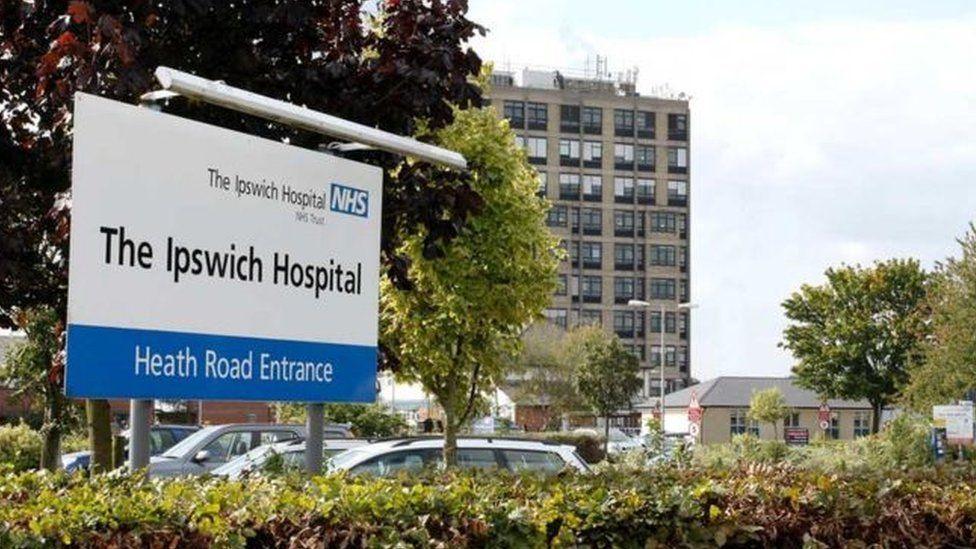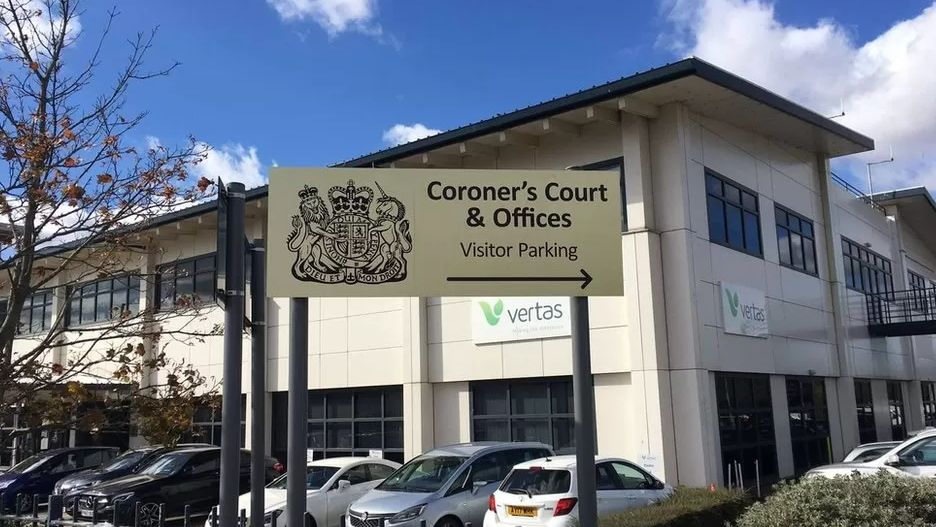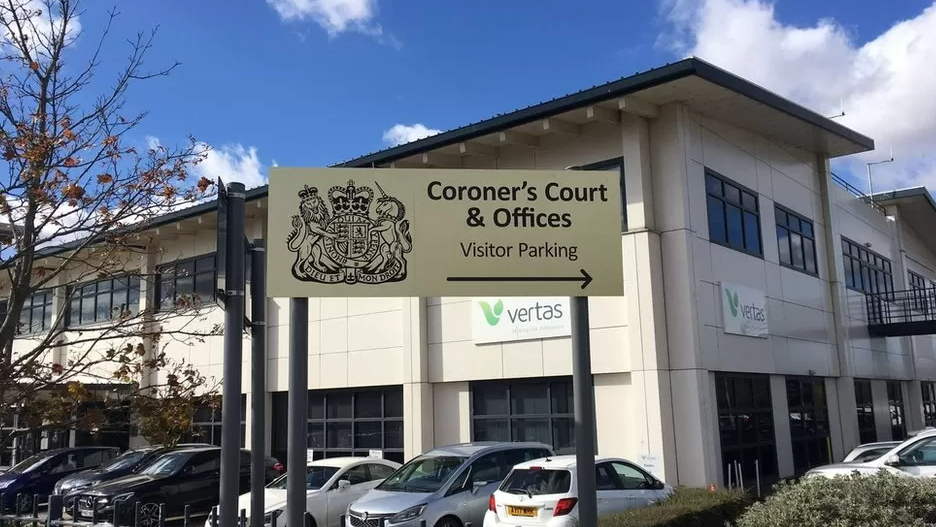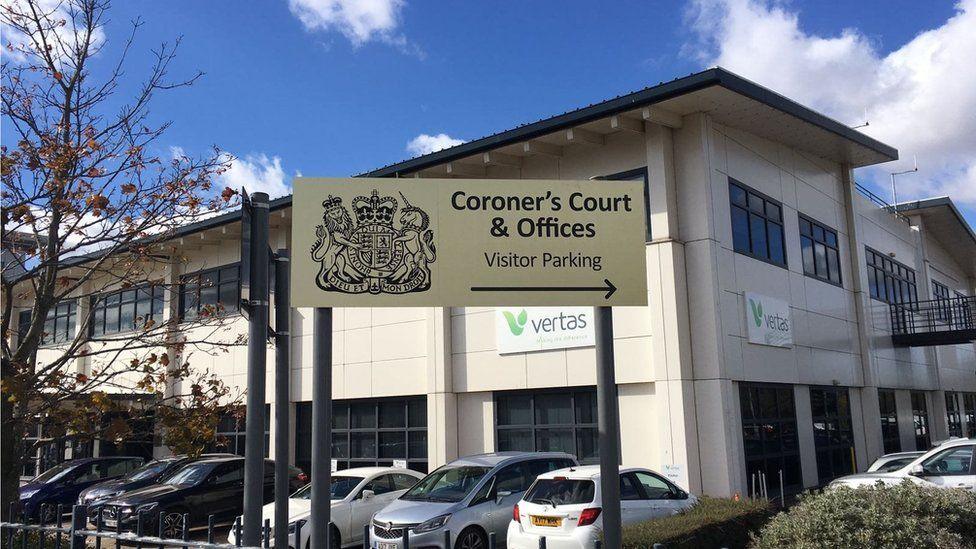Woman's death leads to coroner's report to NHS

Denise Johnson was treated at Ipswich Hospital in 2022
- Published
A coroner has raised concerns about a hospital's clinical procedures and medical management after a patient died.
Denise Johnson, 42, died at the Ipswich Hospital from a number of health issues following abdominal pain in November 2022.
Assistant coroner for Suffolk, Daniel Sharpstone, published a prevention of future deaths report where he raised concerns about discussions staff had with family as well as a lack of clarity over situations involving unexpected staff leave.
East Suffolk and North Essex Foundation Trust (ESNEFT), which is responsible for the the hospital, said it was "committed to taking forward lessons learned" after the Ipswich mum's death.
Ms Johnson was admitted as an emergency with abdominal pain and jaundice in August 2022, according to Dr Sharpstone's report.
She underwent a endoscopic retrograde cholangiopancreatography (ERCP) - a type of gastric endoscopic procedure - after a gallstone was found to be causing her jaundice.
However Dr Sharpstone said in his report Ms Johnson become "acutely unwell" and was diagnosed with acute necrotising pancreatitis.
She was admitted into intensive care for nine days with her care and treatment plans being managed by Ipswich Hospital with "ongoing advice and guidance" from a team at Addenbrooke's Hospital in Cambridgeshire.
However her condition deteriorated and she died.

A coroner has raised concerns following the death of Ipswich woman Denise Johnson
Dr Sharpstone raised three main concerns in his report following Ms Johnson's inquest conclusion in December.
He concluded said there was a "paucity of comprehensible and timely communication" with Ms Johnson's next of kin and family concerning her management plans and treatment options.
Dr Sharpstone said in this situation "two-way feedback" played a "vital role in maintaining patient wellbeing and safety".
He also said at one point it was "unclear" who was responsible for Ms Johnson's pancreatic disease management after her consultant was off due to unexpected leave.
"A clear handover process at consultant surgeon level for unexpected leave enables continuation of care between health care professionals and teams with continuity and oversight of treatment and management plans," he added.
And he also concluded ERCP complications should be dealt within a formal setting with endoscopy staff present.
He said that would then allow "timely feedback" to responsible ERCP practitioners when complications arose.
'Lessons learned'
Dr Martin Mansfield, deputy chief medical officer at ESNEFT offered his sympathies to Ms Johnson's family.
"We welcome the coroner's report and we are committed to taking forward lessons learned," he said.
"Patient safety is our top priority and we take the concerns raised in the report very seriously.
"We are working to address the issues and our full response to the report will be shared with the coroner in due course."
Get in touch
Do you have a story suggestion for Suffolk?
Follow Suffolk news on BBC Sounds, Facebook, external, Instagram, external and X, external.
Stories like this
- Published23 December 2024

- Published22 November 2024

- Published24 October 2024
